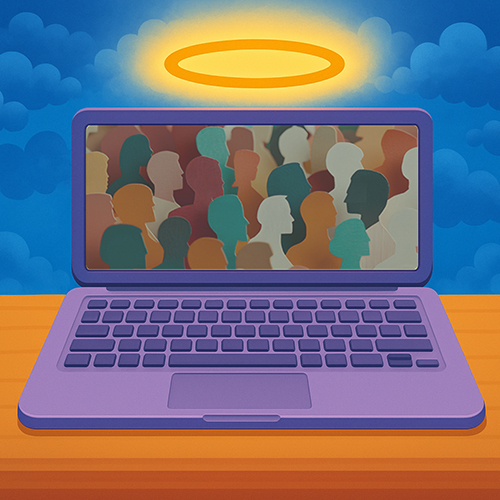-
Happy 10th birthday to the laser interferometer gravitational-wave observatory now drop dead
Ten years ago, astronomers made an epic discovery with the Laser Interferometer Gravitational-Wave Observatory. Cosmology hasnt been the same since, and it might not stay that way much longer. James Bardeen, professor emeritus of physics at the UW, is mentioned.
09/10/2025 | The New York Times -
Best Seattle art exhibits to see in fall 2025
An exhibit by Rob Rhee, assistant professor and chair of interdisciplinary visual art, is included in this roundup.
09/10/2025 | The Seattle Times -
This deep-sea fish has teeth on its forehead and it uses them for sex
Researchers suggest the rows of pointed structures on the heads of spotted ratfish are true teeth, offering the first known example of teeth located outside the jaw. Karly Cohen, a postdoctoral researcher at the University of Washingtons Friday Harbor Labs, is quoted.
09/10/2025 | Smithsonian Magazine -
Best Seattle art exhibits to see in fall 2025
Featuring exhibitions at the University of Washington.
09/10/2025 | Seattle Times -

Can Machines Learn Morality?
UW researchers at the Institute for Learning & Brain Sciences and in the Allen School are exploring the potential for training AI to value altruism.
September 2025 Perspectives -
How does the ratfish hold on during sex? With its forehead teeth, of course
Scientists discover the deepsea creatures club-shaped head appendage is chock full of teeth. Karly Cohen, a postdoctoral researcher at the University of Washingtons Friday Harbor Labs, is quoted.
09/09/2025 | CBC Radio -

Get to know the ratfish and the forehead teeth it uses during sex
Scientists studied how ratfishes, also known as chimaeras or ghost sharks, ended up with one of evolutions most bizarre appendages. Research by Karly Cohen, a postdoctoral researcher at the University of Washingtons Friday Harbor Labs, is mentioned.
09/08/2025 | The New York Times -

Will the James Webb telescope lead us to alien life? Scientists say we're getting closer than ever
Three years into its mission, the James Webb Space Telescope has advanced the search for alien life more than any machine before it. What will it find next? Victoria Meadows, professor of astronomy at the UW, is quoted.
09/07/2025 | Live Science -
This gloriously weird fish has teeth on its forehead for sex
Researchers have finally traced the origin of the spotted ratfishs bizarre forehead teeth, which are used for mating. Karly Cohen, a UW postdoctoral researcher at the University of Washingtons Friday Harbor Labs, is quoted.09/07/2025 | Scientific American -
Freaky fish uses forehead teeth to latch on while mating
The male spotted ratfish a shark-like fish native to the northeastern Pacific Ocean sports rows of teeth outside of its mouth. Karly Cohen, a postdoctoral researcher at the University of Washingtons Friday Harbor Labs, is quoted.09/07/2025 | Cosmos Magazine
